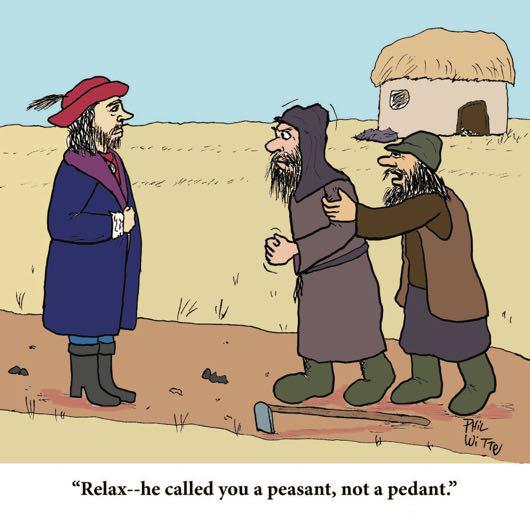試す 金 - 無料
How To Be Really Good
Philosophy Now
|August/September 2022
Robert Griffiths considers what it takes to actually be a mensch.

Research shows that most people think of themselves as nice people (see for example, 'People think they're nicer than they actually are', Rachel Hosie, Independent, 13.3.17). What they seem to mean b by this is that they do little things to help people, such as give up a seat on a train. This is what many people probably think being a 'good person' involves - doing good things. However, the same people admit that very often they do not help if it involves a more significant sacrifice. So, if they think of themselves as good, and they think of being good as doing good things, they realise that they are not as good as they could be. They are quite good but they could be a lot better.
Peter Singer has argued that if we see being good as doing good things, and if we really want to be good, then we have a moral obligation to help others up to the point where if we help them any more we would make ourselves worse off than they are (see for example, 'Famine, Affluence and Morality', 1972). Singer admit that not many people would live like this, and in later writings he has played this obligation down, suggesting that people who want to be good should only give up to 25% of their wealth to those less well off. But it's clear that, deep down, he thinks the more demanding principle holds as a moral requirement.
Loveless Goodness
Singer's view is based on his Utilitarian approach to morality. In Utilitarianism actions are judged morally good in so far as they promote the greatest happiness of the greatest number of people. Therefore the best action is the one that promotes the best consequences in this sense. Singer at his most demanding exhorts people to do the most good they can do.
このストーリーは、Philosophy Now の August/September 2022 版からのものです。
Magzter GOLD を購読すると、厳選された何千ものプレミアム記事や、10,000 以上の雑誌や新聞にアクセスできます。
すでに購読者ですか? サインイン
Philosophy Now からのその他のストーリー

Philosophy Now
Bilbo Theorizes About Wellbeing
Eric Comerford overhears Bilbo and Gandalf discussing happiness.
9 mins
December 2025 / January 2026

Philosophy Now
What Women?
Marcia Yudkin remembers almost choking at Cornell
11 mins
December 2025 / January 2026

Philosophy Now
Islamic Philosophers On Tyranny
Amir Ali Maleki looks at tyranny from an Islamic perspective.
4 mins
December 2025 / January 2026

Philosophy Now
Peter Singer
The controversial Australian philosopher defends the right to choose to die on utilitarian grounds
5 mins
December 2025 / January 2026

Philosophy Now
Another Conversation with Martin Heidegger?
Raymond Tallis talks about communication problems.
7 mins
December 2025 / January 2026

Philosophy Now
Letters
When inspiration strikes, don't bottle it up. Email me at rick.lewis@philosophynow.org Keep them short and keep them coming!
17 mins
December 2025 / January 2026

Philosophy Now
The Philosophy of William Blake
Mark Vernon looks at the imaginative thinking of an imaginative artist.
9 mins
December 2025 / January 2026

Philosophy Now
Philosophical Haiku
Peering through life’s lens God in nature is deduced: The joy of being.
1 mins
December 2025 / January 2026

Philosophy Now
Philosophy Shorts
More songs about Buildings and Food' was the title of a 1978 album by the rock band Talking Heads. It was about all the things rock stars normally don't sing about. Pop songs are usually about variations on the theme of love; tracks like Rose Royce's 1976 hit 'Car Wash' are the exception. Philosophers, likewise, tend to have a narrow focus on epistemology, metaphysics and trifles like the meaning of life. But occasionally great minds stray from their turf and write about other matters, for example buildings (Martin Heidegger), food (Hobbes), tomato juice (Robert Nozick), and the weather (Lucretius and Aristotle). This series of Shorts is about these unfamiliar themes; about the things philosophers also write about.
2 mins
December 2025 / January 2026

Philosophy Now
Hedonic Treadmills in the Vale of Tears
Michael Gracey looks at how philosophers have pursued happiness.
8 mins
December 2025 / January 2026
Translate
Change font size
